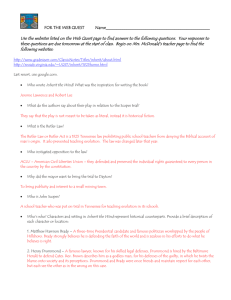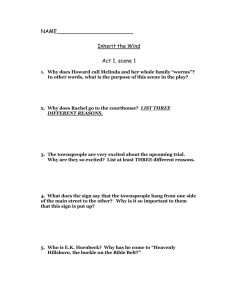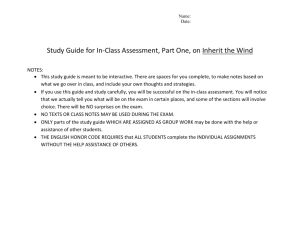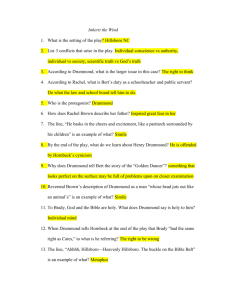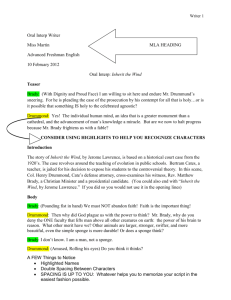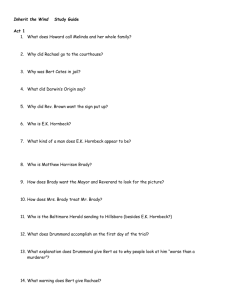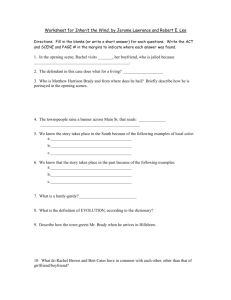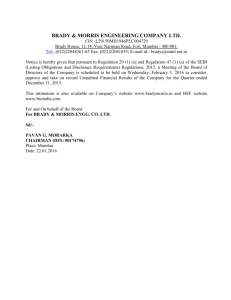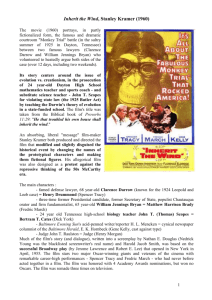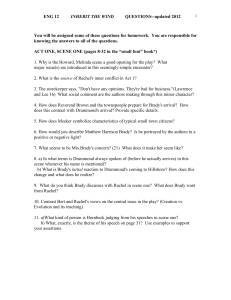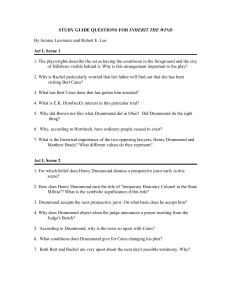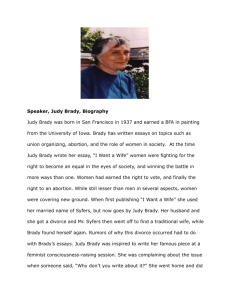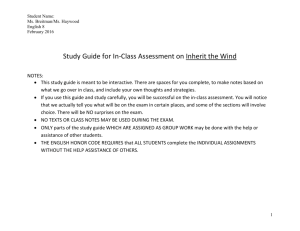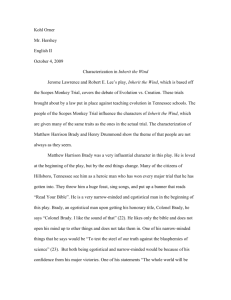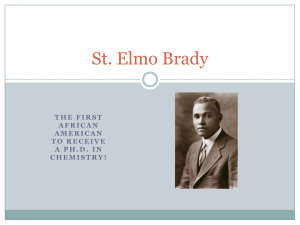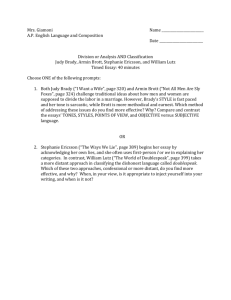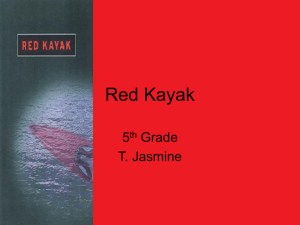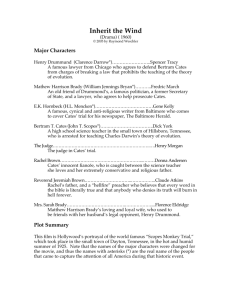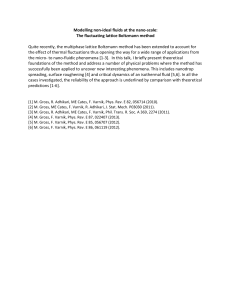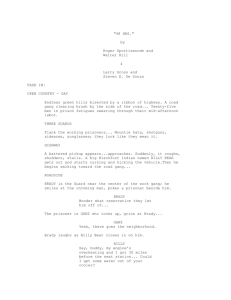Inherit the Wind `08
advertisement
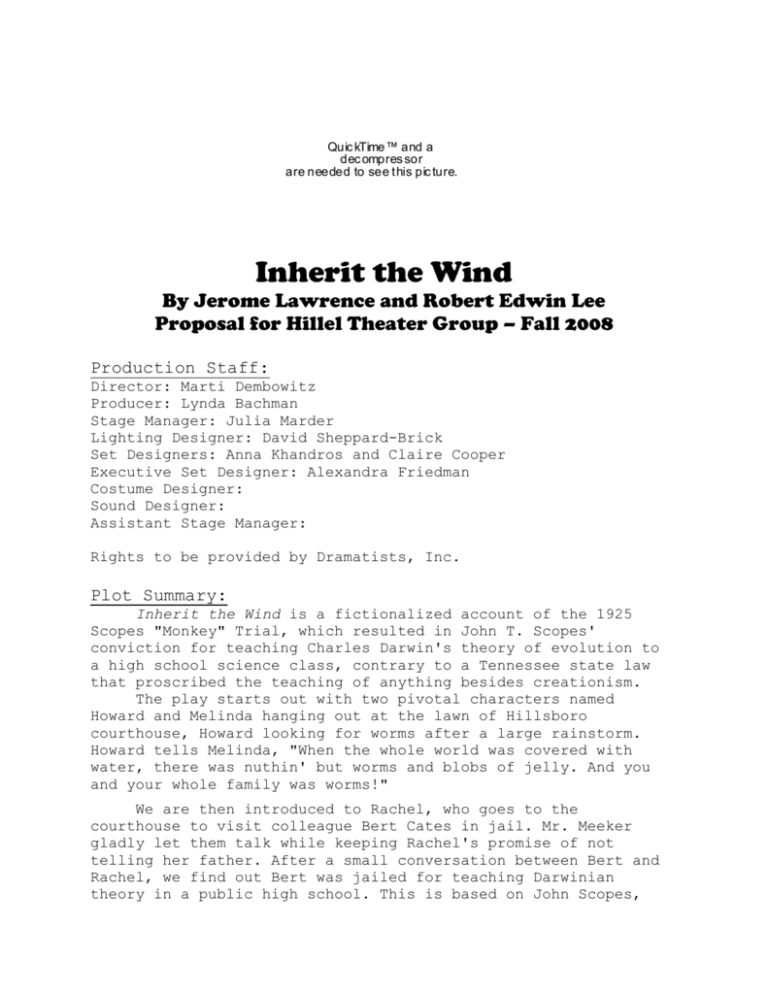
Quic kTime™ and a dec ompres sor are needed to see this pic ture. Inherit the Wind By Jerome Lawrence and Robert Edwin Lee Proposal for Hillel Theater Group – Fall 2008 Production Staff: Director: Marti Dembowitz Producer: Lynda Bachman Stage Manager: Julia Marder Lighting Designer: David Sheppard-Brick Set Designers: Anna Khandros and Claire Cooper Executive Set Designer: Alexandra Friedman Costume Designer: Sound Designer: Assistant Stage Manager: Rights to be provided by Dramatists, Inc. Plot Summary: Inherit the Wind is a fictionalized account of the 1925 Scopes "Monkey" Trial, which resulted in John T. Scopes' conviction for teaching Charles Darwin's theory of evolution to a high school science class, contrary to a Tennessee state law that proscribed the teaching of anything besides creationism. The play starts out with two pivotal characters named Howard and Melinda hanging out at the lawn of Hillsboro courthouse, Howard looking for worms after a large rainstorm. Howard tells Melinda, "When the whole world was covered with water, there was nuthin' but worms and blobs of jelly. And you and your whole family was worms!" We are then introduced to Rachel, who goes to the courthouse to visit colleague Bert Cates in jail. Mr. Meeker gladly let them talk while keeping Rachel's promise of not telling her father. After a small conversation between Bert and Rachel, we find out Bert was jailed for teaching Darwinian theory in a public high school. This is based on John Scopes, who was a high school biology teacher jailed for teaching Evolution as well. Rachel attempts to get Bert to admit he was sorry and "did wrong" but Bert believes he did not do anything wrong. Rachel leaves after failing, not before Cates embraces her, asking her to love him. The play switches to the arrival of Matthew Harrison Brady, and the arrival of reporters and spectators. The small town welcomes Brady into their community and throw a picnic for him and his services. The arrival of Henry Drummond, for the defense, is not received very well because he is agnostic. The play speeds up as the trial begins for Cates and the battle between the two oratorical giants of the era. Character Breakdown: -Matthew Harrison Brady - The prosecuting attorney. He is a talented orator and an experienced politician. He is a defender of fundamentalism and a self-proclaimed expert on the Bible. He is pompous and self-righteous and is reduced to a tragic figure and ultimately dies after Drummond questions him on the witness stand. -Henry Drummond - The defense attorney engaged by the Baltimore Herald for Cates. Drummond is sophisticated, charming, and idealistic. When he defends Cates, he is defending the freedom of thought and “the right to be wrong.” -E.K. Hornbeck - A newspaper columnist for the Baltimore Herald who is sent to Hillsboro to cover Cates’ trial. Throughout the trial, he mocks Brady and his fundamentalist beliefs and the people of Hillsboro for their ignorant views about evolution. -Bertram Cates - The defendant in the trial, a quiet, modest 24year-old science teacher who has been arrested for teaching evolution to his sophomore science class. -Reverend Jeremiah Brown - A fundamentalist preacher. As the spiritual leader of Hillsboro, he zealously believes in the literal interpretation of the Bible and is cruel and controlling. -Rachel Brown - A 22-year-old second-grade schoolteacher who is the daughter of Reverend Jeremiah Brown and a close friend of Cates. Rachel experiences personal growth through the course of the play. -Judge - The judge in Cates’ trial. He tries to remain impartial in spite of his religious beliefs. -Mrs. Brady - Brady’s wife. She mothers her husband, watching over his health and diet. -Meeker - The bailiff at the Hillsboro courthouse for many years. He is nonjudgmental and kind to Cates. -Melinda Loomis - A 12-year-old girl. Upon seeing Drummond, she screams that he’s the devil. -Howard Blair - A student in Cates’ science class. He testifies against Cates. -Mr. Goodfellow - The owner of a general store near the courthouse. He is more interested in running his business than in the arrival of Brady or the upcoming trial. -Mrs. Krebs - A member of the Hillsboro community. She plans a community picnic for the celebration of Brady’s arrival and voices her opinions in the courtroom during the trial. -Corkin - A local man who helps put up the banner that says, “Read Your Bible.” -Mrs. Blair - Howard’s mother. She is a member of the Bible League and marches in the parade when Brady arrives. -Elijah - A hermit. He sells Bibles and voices his religious beliefs to the crowd of people awaiting Brady’s train. He tries to sell a Bible to Hornbeck. -Mayor - The mayor of Hillsboro. He gives a speech welcoming Brady and bestows upon him the title of Honorary Colonel in the State Militia. -Tom Davenport - District Attorney who assists Brady during the trial. -Jesse H. Dunlap - A farmer and cabinetmaker who is interviewed but rejected for jury duty. *There are various other characters not included in this list. Multiple roles will be given to cast members with smaller parts. Budget: Set: $1000 Props: $200 Costumes: $500 Rights: $300 Scripts: $150 (20x$7.50) Theater Fee: $580 Lighting: $75 Sound: $50 UTC Fee/Publicity: $450* Total: $3,155 * This item will be paid for by Hillel and will not be included in the budget submitted to F-board. **This budget is subject to change. It was based off of the Fall ’07 budget for “Fools.” Why Inherit the Wind: Religion and science do not always mix well. Neither do history and drama. However, this play mixes these 4 elements together creating an exciting story which engages every audience member. The vibrant and varied characters, personalities, and opinions are able to draw in listeners of all backgrounds, and the story told remains relevant and challenging in our modern world. I first read this play in middle school and still remember how my class wanted to act out the play instead of simply read the words. The play begged to be performed then, and this year, I wouldn’t have wanted to direct any other piece. While the story is based on an actual historical event, the Southern evolution story contains themes and conflicts which are relevant and alive in today’s world. The debates between reason and faith, science and religion, laws and beliefs continue on. I believe that this show can also serve as a springboard for a discussion on evolution and religion. I would like to use this play to involve the Sociology, Religious Studies, and Biology departments, as well as various student clubs to discuss how the issues and conflicts illustrated by the play affect and relate to our Brandeis community. Why HTG: I am committed to HTG’s mission to bring theater to people of all backgrounds and beliefs. There is no better group to produce a show which discusses the difficulties presented by differences of opinions and beliefs. HTG makes a point to include and encourage diversity in the cast, making it the only group to present the issues central to Inherit the Wind. Additionally, HTG shows are fun and encourage casts to play around with the characters and enjoy the theater experience. While I have directed small plays before, directing will be new for me and I want to be able to work with a cast that enjoys the process. The show may be dramatic, but I want to direct in an environment and with a group of students who want to put on a great show, but who also want to enjoy the road leading to the performance.
